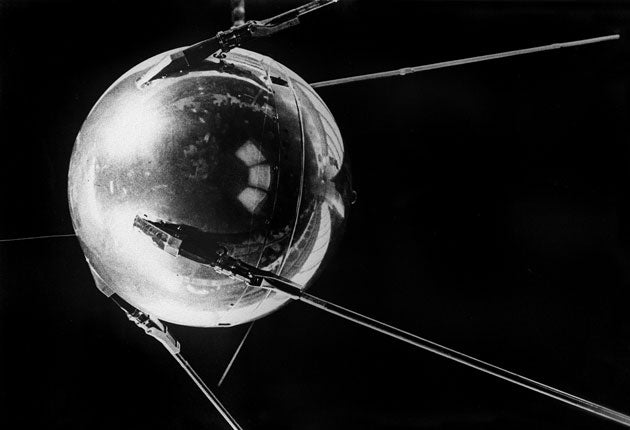US science chief warns: 'China will eat our lunch'
Soviet Sputnik satellite launch in 1957 threatened American pre-eminence. Now Beijing poses a similar danger, says Obama adviser

Your support helps us to tell the story
From reproductive rights to climate change to Big Tech, The Independent is on the ground when the story is developing. Whether it's investigating the financials of Elon Musk's pro-Trump PAC or producing our latest documentary, 'The A Word', which shines a light on the American women fighting for reproductive rights, we know how important it is to parse out the facts from the messaging.
At such a critical moment in US history, we need reporters on the ground. Your donation allows us to keep sending journalists to speak to both sides of the story.
The Independent is trusted by Americans across the entire political spectrum. And unlike many other quality news outlets, we choose not to lock Americans out of our reporting and analysis with paywalls. We believe quality journalism should be available to everyone, paid for by those who can afford it.
Your support makes all the difference.China is in pole position to overtake the United States as the premier nation for scientific and technological innovation, and will do so if Americans fail to raise their game, President Barrack Obama's own science adviser has told The Independent on Sunday.
John Holdren, the director of the White House office of science and technology policy, explained that the US faces a similar technological challenge to the one it faced half a century ago when the USSR launched the world's first satellite – to the surprise of the Americans.
He warned that the United States faces another "Sputnik moment", but this time the adversary is China, which is investing heavily in scientific research and development. Chinese schoolchildren are now consistently outperforming USpupils in science and mathematics.
"Everybody is looking at China and saying, if we don't lift our game, China is going to eat our lunch economically because the amount they are investing in science, technology and innovation, while it has not yet reached anything like our level, is rising very quickly," Dr Holdren said.
President Obama said in his State of the Union address last month that Americans today face their own "Sputnik moment" and that the US needs to reach a level of research and development that the country has not seen since the height of the space race five decades ago.
Dr Holdren, who trained in aeronautics and plasma physics and is a professor of environmental policy, explained what President Obama meant by his reference to the Sputnik satellite: "When the Russians put the first artificial satellite into orbit [in 1957], and we were able to look out at the night sky and see that glimmer of light as it passed overhead, it really had a profound effect on the people of this country and its policymakers," he said.
"We always thought of the United States as being the first in science and technology, and suddenly we were beaten into space by the Russians, who at that time were our adversaries. What it led to was an enormous effort to catch up, and it led to the space programme as we know it, including the moon mission and the moon landings."
"It led to enormous numbers of young people interested in and inspired about science, maths, and engineering. I'm in that cohort, somebody who was a kid at that time and who became even more excited about science and technology than I'd been before – by this event and by the challenge of catching up and doing exciting things. So when the President talks about the 'Sputnik moment', what he's saying is that we are at some kind of turning point. He's saying essentially it's a wake-up moment. It's time to realise we have to get going.
"Part of that Sputnik moment is the test scores of our kids on the international science and maths tests where the US typically ranks between 17 and 25. Part of our Sputnik moment is realising how hard we need to work to lift our game in science, technology, engineering and maths education."
Dr Holdren, who was a guest speaker at the American Association for the Advancement of Science in Washington this week, said that China is doing "extraordinary things" in terms of science and innovation. The Chinese are investing in major university research facilities, such as huge experimental wind tunnels to test advanced passenger trains.
"So people are looking in there and saying 'you know, it's not automatic that the US will be number one in science, technology and innovation'. This is something that has to be cultivated, it has to be invested in, and the President has been very clear that he wants to see us having innovation, education and out-build the competition," Dr Holdren said.
"He does not want to preside over the US sliding into an inferior position. It ends up compromising our economy, compromising our balance of payments and ultimately compromising our security."
Join our commenting forum
Join thought-provoking conversations, follow other Independent readers and see their replies
Comments